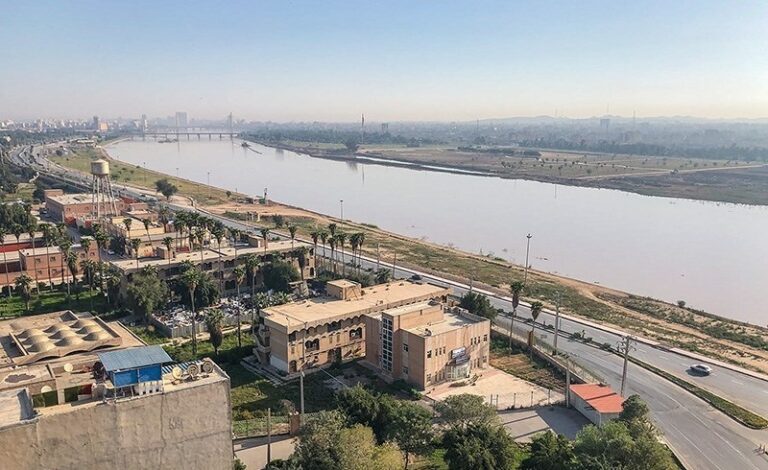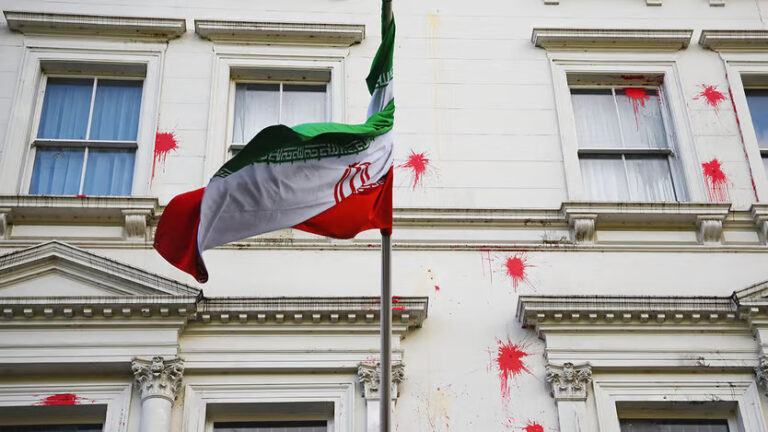BAKU/TEHRAN (Agencies)
Iranian President Mahmoud Ahmadinejad said Thursday the Islamic republic was “always ready”
for talks on its nuclear program but blasted Western attempts to pressure Iran with sanctions. “We were always ready for negotiations,” Ahmadinejad told a press conference in the Azerbaijani capital Baku, while decrying attempts by world powers to “put pressure on Iran.” “They think that they will achieve something by putting pressure on Iran. But they will not… They hope that a blockade of Iran will change the Iranian people. But the Iranian people will not be broken by sanctions.”
Both sides have expressed readiness to meet for talks on Dec. 5 but have not agreed on a venue, and Ahmadinejad has signalled that at least some of Iran’s activities are off limits.
The talks are aimed at allaying Western concerns that Iran’s nuclear activities are masking a weapons drive under the guise of a civilian program, a charge Tehran has repeatedly denied.
Previous discussions were broken off after Iran in October 2009 rejected a proposal by world powers to exchange nuclear fuel.
The international community has since stepped up economic and political measures against Iran, and the Security Council in June slapped Tehran with a fourth set of U.N. sanctions.
Ahmedinejad on world powers
World powers should stop threatening Iran if they want to achieve results at talks on Tehran’s nuclear program, Ahmadinejad also said on Thursday.
“If they want to achieve positive results they should stop thinking as aggressors. There are those among them who think as aggressors, and they think they can achieve positive results by putting pressure on us and threatening us.”
He continued: “They should change the old methods, otherwise the results will be the same. No embargoes can change the Iranian people.”
He said Iran had offered to hold the meeting in Istanbul, and the six powers had suggested Geneva.
The West suspects Iran wants to build atomic weapons but Tehran says its nuclear program is designed purely for generating electricity.
Of the sanctions, he said: “Iran is a rich country, and even in the last six months, while the embargo was in place, our economy grew.” He compared the West’s actions to those of a “mosquito”.
Ahmadinejad was in Azerbaijan for a summit of leaders of five states littoral to the Caspian Sea to address overlapping claims to the sea’s vast energy riches.
|
|
||
|
Website of Iran’s English-language Press TV
|
||
Iran “successfully” test fires upgraded soviet-era missile
Iran has “successfully” test fired an upgraded version of a Soviet-era missile, a commander said in a report on Thursday, after Moscow dropped plans to supply Tehran with S-300 missiles.
The website of Iran’s English-language Press TV reported that the Islamic republic had “designed an air defense system that has the same capability as the Russian-made S-300 system.”
“We have developed the system by upgrading systems like the S-200, and we have tested it successfully using all our potential and experience in the Islamic Revolution Guards Corps (IRGC), the Army and the Defense Ministry,” it quoted Brigadier General Mohammad Hassan Mansourian, the deputy commander in the Iran’s air defense unit, as saying.
It was unclear from the report about the nature of the test, and whether it was carried out during ongoing aerial defense war games.
Last week Mansourian had told the state news agency IRNA that “very soon we will test long-range aerial defence missiles, including Iranian S-300s.”
Iran’s military has long touted its intentions to come up with a long-range anti-aircraft missile system comparable to the S-300, after Moscow’s refusal to deliver that system because of U.N. sanctions against Tehran over its nuclear drive.
“Long-range threats comprised some 20 percent of threats against the nation, and we have developed solutions for it, including an improvement of the S-200 system,” Mansourian was quoted as telling IRNA on Wednesday.
The S-300 is a ground-to-air missile system of medium and high altitude and with a long-range capability (up to 150 kilometers, 90 miles), according specialized military and aeronautics websites.
It was developed by Russia in the 1980s to intercept multiple targets, aircraft or missiles, like the U.S. Patriot system.
The S-300 is the next generation of the S-200, which uses technology that dates back to the 1960s. Tehran purchased S-200s from the former Soviet Union in the 1980s.











+ There are no comments
Add yours